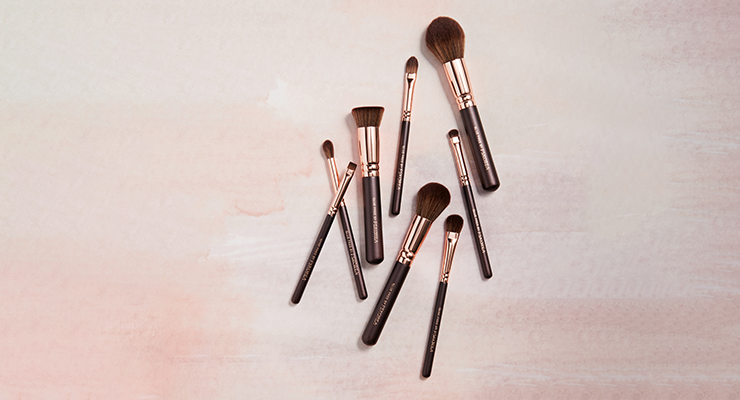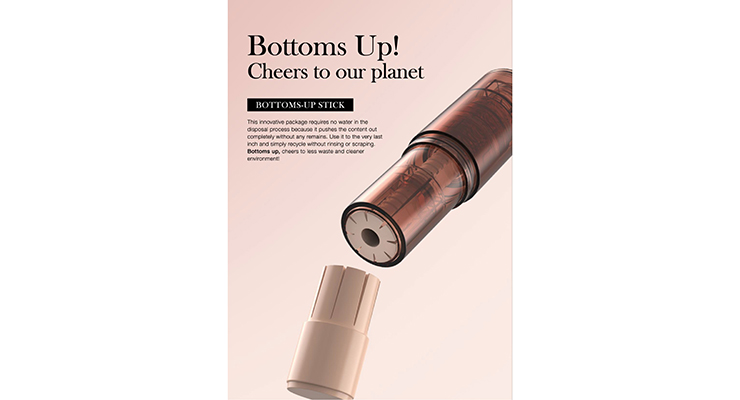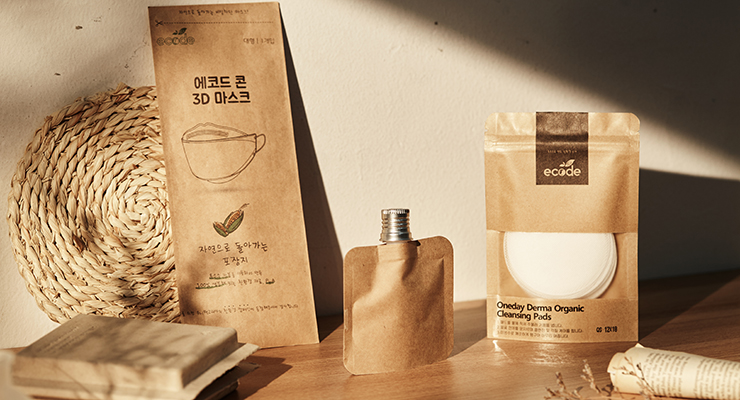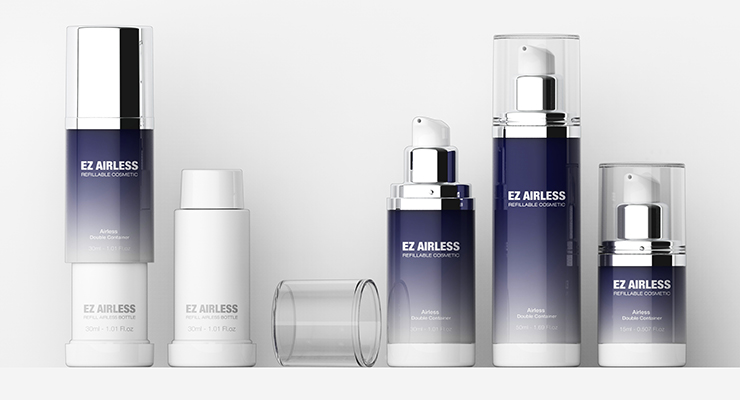Jean-Yves Bourgeois, Correspondent03.11.21
In times when both the consequences of the pandemic and new environmental and societal requirements are weighing on the market, the upstream side of the beauty sector—namely, packaging and/or full-service suppliers—are adapting. How is the Korean industry tackling this unprecedented situation?
Reduce, Refill, Reuse, Replace, Recycle… These words sound like a new cosmetic credo, including for the packaging industry. As with finished products, where clean, fewer ingredient formulations are in vogue, there is a trend towards using as little raw material as possible for primary and secondary packaging. This trend is all the stronger as it increases the recycling rate of containers, unlike multi-material packs.
All Korean manufacturers interviewed for this article, stated their environmental ambitions.
Sunny Choi, CEO of CTK (Cosmetics Technics Korea), sums them up this way: "In all cases and right away, work on concepts based on mono-materials, focus on recyclable products, opting as much as possible for refillable versions, use of recycled plastics (PCR) as much as possible, and finally, work on the bioplastics option." JK Hwang, of FSKorea, explains that for the past two years, the main objective of this company he created, is sustainability.
This approach starts upstream of the chain. Yonwoo, for example, prides itself on its CO2 emissions below local standards, and on its efforts in saving water. CTK Cosmetics, where 70% of employees have committed to using public transport, has equipped its new headquarters with solar panels and banned the use of plastic in its offices. And in these times of pandemic, its digital eco-system, including first, the CTK Clip (virtual beauty innovation platform), should make it possible to create a true and contact-less connection with the customer, from the choice of raw materials to the design of the packaging, thanks to the virtual showroom and the digital sales platform.
Raw Materials
In terms of raw materials, Yonwoo highlights eco-friendly plastic, such as bio PE made of sugar cane. Unipack is working on cellulose PP which contains pulp waste resulting from the production of stationery or commercial paper. The company also promotes its palettes, powders, etc... based on PCR (post-consumer recycled), PP and PET material, which are in turn recyclable, a virtuous loop. Yonwoo is reducing the thickness of its containers. For example, its renewable 30ml Rimbase bottle allows a 32% reduction in plastic compared to the standard version. And its tests on PCR and Bio PE materials should yield results by the end of the year. FSKorea also offers Glue Free Brushes.

FSKorea offers glue-free brushes.
In addition, the effort toward facilitating recycling is constantly increasing, as shown by the set of refillable jars for face care products at Yonwoo (including airless versions), for example. Yonwoo's One Material Pump is designed with a single plastic material only, making it easier for the consumer to sort. Containers made of 94% PP and 6% PM and CTK’s springless airless pumps are fully recyclable. Fewer raw materials, too, are being realized, such as this brush with its screwable head at FSKorea, with a handle for different heads.
Christine Ansari, VP Europe Middle East Division, CTK, presented the Bottom Up Stick, a stick that allows using the entire product before recycling it. The concern for recycling is the same with Unipack's eco-friendly dropper or pump, which are designed without metal.

CTK’s Bottom Up Stick allows the entire product to be used up prior to recycling it.
And primary packages are not just bottles, boxes or palettes: Unipack, for instance, is expanding its range of laminated paper bags with a PLA film on the inside used for masks, a constantly growing skin care offer.

Unipack’s laminated paper bags with a PLA film on the inside used for masks.
Employee Benefits
But it is not just the production method that is changing to offer greener products. This new policy should also benefit the employees of these packaging producers. At CTK Cosmetics, Choi recalls that his company wants to be "a pioneer in progressive politics. We are proud to be at the forefront in this field, with 60% of female board members," he says.
While L'Oréal, the world leader, has recently promised 95% petrochemical-free beauty products by 2030, packaging suppliers need to follow suit and step-up their eco-conscious efforts to facilitate a more virtuous circular economy. However, if the environment indeed benefits from this trend, it is also true that these constraints weigh on costs. Traceability and clean beauty are challenging. Sustainability and performance are sometimes difficult to reconcile, as FSKorea’s Hwang pointed out: "Durability should force consumers to make compromises in terms of products’ performances and aesthetics. Durable items may not perform as well as existing items and may not look as good. Minimizing these compromises is another of our challenges." Moreover, these measures require re-educating the consumer and Joong-Hyun Ki, CEO-president of Yonwoo, adds: "Green solutions must also be user-friendly. This means that we want both our customers and users to get familiar with the eco-routine through intuitive and easy-to-use products."
Reduce, Refill, Reuse, Replace, Recycle… These words sound like a new cosmetic credo, including for the packaging industry. As with finished products, where clean, fewer ingredient formulations are in vogue, there is a trend towards using as little raw material as possible for primary and secondary packaging. This trend is all the stronger as it increases the recycling rate of containers, unlike multi-material packs.
All Korean manufacturers interviewed for this article, stated their environmental ambitions.
Sunny Choi, CEO of CTK (Cosmetics Technics Korea), sums them up this way: "In all cases and right away, work on concepts based on mono-materials, focus on recyclable products, opting as much as possible for refillable versions, use of recycled plastics (PCR) as much as possible, and finally, work on the bioplastics option." JK Hwang, of FSKorea, explains that for the past two years, the main objective of this company he created, is sustainability.
This approach starts upstream of the chain. Yonwoo, for example, prides itself on its CO2 emissions below local standards, and on its efforts in saving water. CTK Cosmetics, where 70% of employees have committed to using public transport, has equipped its new headquarters with solar panels and banned the use of plastic in its offices. And in these times of pandemic, its digital eco-system, including first, the CTK Clip (virtual beauty innovation platform), should make it possible to create a true and contact-less connection with the customer, from the choice of raw materials to the design of the packaging, thanks to the virtual showroom and the digital sales platform.
Raw Materials
In terms of raw materials, Yonwoo highlights eco-friendly plastic, such as bio PE made of sugar cane. Unipack is working on cellulose PP which contains pulp waste resulting from the production of stationery or commercial paper. The company also promotes its palettes, powders, etc... based on PCR (post-consumer recycled), PP and PET material, which are in turn recyclable, a virtuous loop. Yonwoo is reducing the thickness of its containers. For example, its renewable 30ml Rimbase bottle allows a 32% reduction in plastic compared to the standard version. And its tests on PCR and Bio PE materials should yield results by the end of the year. FSKorea also offers Glue Free Brushes.

FSKorea offers glue-free brushes.
In addition, the effort toward facilitating recycling is constantly increasing, as shown by the set of refillable jars for face care products at Yonwoo (including airless versions), for example. Yonwoo's One Material Pump is designed with a single plastic material only, making it easier for the consumer to sort. Containers made of 94% PP and 6% PM and CTK’s springless airless pumps are fully recyclable. Fewer raw materials, too, are being realized, such as this brush with its screwable head at FSKorea, with a handle for different heads.
Christine Ansari, VP Europe Middle East Division, CTK, presented the Bottom Up Stick, a stick that allows using the entire product before recycling it. The concern for recycling is the same with Unipack's eco-friendly dropper or pump, which are designed without metal.

CTK’s Bottom Up Stick allows the entire product to be used up prior to recycling it.
And primary packages are not just bottles, boxes or palettes: Unipack, for instance, is expanding its range of laminated paper bags with a PLA film on the inside used for masks, a constantly growing skin care offer.

Unipack’s laminated paper bags with a PLA film on the inside used for masks.
Employee Benefits
But it is not just the production method that is changing to offer greener products. This new policy should also benefit the employees of these packaging producers. At CTK Cosmetics, Choi recalls that his company wants to be "a pioneer in progressive politics. We are proud to be at the forefront in this field, with 60% of female board members," he says.
While L'Oréal, the world leader, has recently promised 95% petrochemical-free beauty products by 2030, packaging suppliers need to follow suit and step-up their eco-conscious efforts to facilitate a more virtuous circular economy. However, if the environment indeed benefits from this trend, it is also true that these constraints weigh on costs. Traceability and clean beauty are challenging. Sustainability and performance are sometimes difficult to reconcile, as FSKorea’s Hwang pointed out: "Durability should force consumers to make compromises in terms of products’ performances and aesthetics. Durable items may not perform as well as existing items and may not look as good. Minimizing these compromises is another of our challenges." Moreover, these measures require re-educating the consumer and Joong-Hyun Ki, CEO-president of Yonwoo, adds: "Green solutions must also be user-friendly. This means that we want both our customers and users to get familiar with the eco-routine through intuitive and easy-to-use products."




























